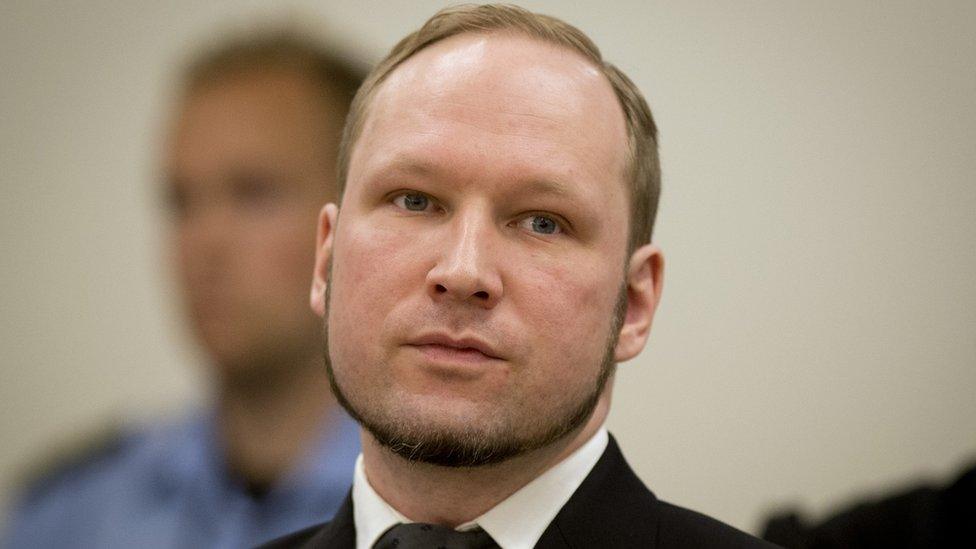Gloucestershire teenager sentenced for far-right terrorism offences
- Published

A meme of right-wing terrorist Anders Breivik was found among the boy's possessions
A teenager who downloaded manuals on how to make bombs and poisons has been sentenced to a 12-month referral order.
The 17-year-old from Gloucestershire, who cannot be identified for legal reasons, was arrested by counter-terrorism police in December 2019.
Far-right symbols such as swastikas were found scratched into a desk in his bedroom, Bristol Youth Court was told.
Detailed guides explaining ways of killing someone were also found on his phone.
Gloucestershire Police said the boy's electronic devices contained images of him performing Nazi salutes, posing with imitation firearms and memes of mass killers such as Norwegian terrorist Anders Breivik.
The boy admitted 11 counts of collecting material of use to a person committing or preparing an act of terrorism contrary to section 58 of the Terrorism Act 2000.
Senior District Judge Paul Goldspring, chief magistrate for England and Wales, sentenced the teenager to a 12-month referral order, which included a programme of rehabilitation.
The judge said he felt the boy did not pose a significant risk of serious harm to the public.
Interest in 'extreme Neo-Nazism'
"It is very important that you take this opportunity to pause and think," the judge told the boy, saying that if he appeared before him again a custodial sentence was likely.
Prosecuting, Kelly Brocklehurst said the boy had an interest in an "extreme form of Neo-Nazism".
In police interviews, the boy said he had not looked at some of the documents and said they may have appeared through a "bulk download", Mr Brocklehurst said.
The boy, who did not distribute the documents he downloaded, claimed he was interested in psychology and wanted to write about extremism.
He told the judge he hadn't realised he was breaking the law, and being arrested had been a "wake-up call".
Speaking after the case, Det Supt Craig McWhinnie, head of Counter Terrorism Policing South West, said: "The entrenched views and hatred displayed by this young person combined with their consumption of violent and disturbing literature remain deeply concerning," Mr McWhinnie said.
"This investigation is another stark reminder of the hateful and damaging material found online that, for all of us, is only a few clicks away."

Follow BBC West on Facebook, external, Twitter, external and Instagram, external. Send your story ideas to: bristol@bbc.co.uk , external